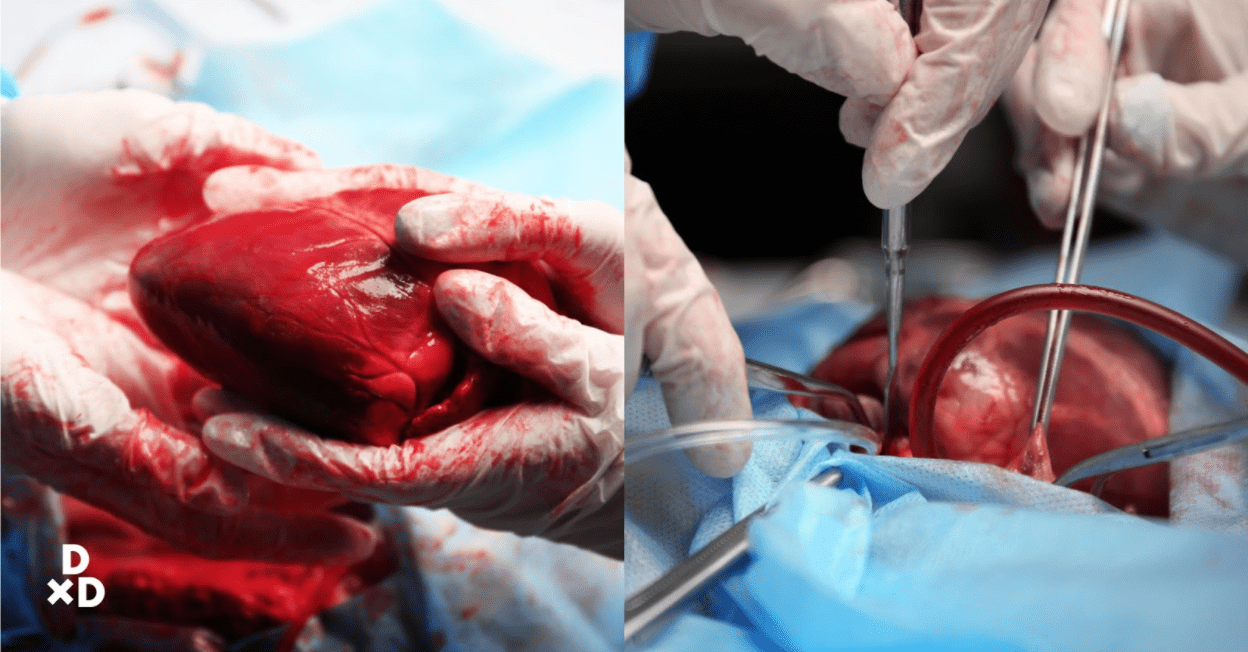Understanding organ transplants
Introduction
Getting an organ transplant is a second chance at life for those who are experiencing organ damage or failure. Getting on the waiting list and having the procedure is the first step to living normally and the rest will be up to you to ensure a successful transplant procedure by living healthily and taking the necessary immunosuppressant medication. [1]
Let surgery specialist, Dr Ravishankar walk you through everything you need to know about getting an organ transplant surgery, what to expect pre- and post-procedure and how to take care of your new transplant.
What is an Organ Transplant?
An organ transplantation is a surgical procedure where one organ is removed from one body and placed in another body to replace a damaged or missing organ. It is also the only possible treatment for end-stage organ failure. These transplanted organs can be from a deceased donor or someone who agreed to living donor transplants.
Having an organ transplant can help lengthen a person’s lifespan and people with a chronic illness to live a considerably normal life.
What are the types of organ transplants?
The types of organs that can be transplanted are:
- Heart
- Lungs
- Liver
- Pancreas
- Cornea
- Trachea
- Kidney
- Skin
- Vascular tissues
Worldwide, kidney transplants are the most common type of transplant surgery and are relatively non-invasive. That being said, all transplant operations are technically complex procedures and require a skilled doctor to ensure a successful transplant. [2]

What are the laws on Organ Transplants in Singapore?
Organ transplants are an incredible advancement of technology that cannot be possible without organ donors who help gift a life to those who need it. In Singapore, there are two main laws governing organ transplants in Singapore and these are:
HOTA (Human Organ Transplant Act)
All Singapore citizens and permanent residents who are at least 21 years old and have no mental disorders are automatically included in this scheme, however one can opt out if they wish to. [3]
The Human Organ Transplant Act permits the kidneys, heart, liver and corneas to be removed from a deceased patient for the purpose of transplantation.
One can opt out of HOTA through a form which is sent to the National Organ Transplant Unit.
MTERA (Medical Therapy, Education and Research Act)
Conversely, MTERA is an opt-in scheme where people are able to pledge their organs or tissues for transplantation or education and research once they have passed on. You have the option to donate all your organs or specify those which you wish to donate.
Donors must be at least 18 years of age or an adult family member may pledge the organs of the deceased patient of any age for donation. [4]
Undergoing an organ transplant
What is an Organ Transplant process like in Singapore?
The transplant process varies slightly depending on the organ, but finding a matching organ is necessary for a successful transplant.
Every year, over 500 patients wait to receive a suitable transplant in Singapore. Typically, most patients have to wait 5 to 17 years for a suitable organ. The wait is often long and agonising. [5]
Getting on the transplantation waiting list requires a physician or specialist’s recommendation to a transplant centre. This is usually if they determine that you are in organ failure or may soon be in organ failure. After which, you will undergo an evaluation to help determine what potential donor would be a good match for you and if you are suitable for an organ transplant procedure.
What disqualifies you to get an Organ Transplant in Singapore?
If you have been deemed suitable for an organ transplant, you will have to undergo further testing to assess [6]:
- Whether your body is capable of tolerating the surgery and anaesthesia
- Whether there is a presence of cancer in your body
- Your genetic makeup to discern matching donors
- Your mental health and the presence of any untreated psychiatric or mental disorders
- Any addictive or harmful behaviours
Assessing your ability to manage your health before getting a transplant is paramount because receiving an organ is no easy feat! You will have to be in good shape mentally and physically in order to have a successful transplant.
What are the risks of getting an Organ Transplant?
As with any form of procedure, getting an organ transplant comes with its own risks. However, arguably these complications outweigh the benefits of receiving a transplanted organ. Although they vary with the type of organ or tissue transplanted, they are mainly [7]:
Risks related to the transplantation procedure.
Risks related to immunosuppressive medication, such as side effects like an increased risk of infection.
Risk of the transplant failing or a rejection.

What happens if your body rejects an organ?
Your body’s natural immune system usually protects you from harmful foreign substances. Transplant rejection happens when your immune system attacks the transplanted organ or tissue.
To prevent this reaction, patients are prescribed with medication to help suppress the recipient's immune system to prevent their bodies from attacking the foreign tissue. A rejection is also prevented by ensuring that the donated organ is a better match for the recipient — the more similar the antigens are between the donor and recipient, the lesser the chances of the transplanted organ being rejected.
There are three main types of rejection: [8]
- ### Hyperacute rejection
Hyperacute rejection is an almost immediate response and happens within a few minutes after the transplant when the antigens are completely unmatched. The tissues then have to be removed as soon as possible so that the recipient does not die.
- ### Acute rejection
This type of rejection typically happens between the first week to three months of the transplant. All recipients will experience some amount of rejection.
- ### Chronic rejection
Chronic rejection can happen over a span of a few years. This happens when the body’s immune system attacks the new organ or tissues slowly, causing damage over time.
The symptoms of an organ transplant are:
- The organ does not function well
- Feeling unwell or discomfort
- Flu-like symptoms such as chills, body aches, cough or shortness of breath
- Although much rarer occurrences, other symptoms include pain or swelling in the area of the affected organ or a fever.
The symptoms experienced largely depend on the type of organ or tissue that has been transplanted and may vary for each individual. If you suspect yourself or a loved one to be experiencing organ rejection, it is always best to consult your doctor for further examination.
How do you prepare for an Organ Transplant procedure?
Although the waiting period for an available organ may take years, giving you time to anticipate your surgery — no one will ever be fully ready for the procedure. This is especially so because time is so critical that when a suitable organ does become available, you will be scheduled and admitted to the hospital for surgery as soon as possible.
However, you can prepare yourself mentally and understand the changes that you will have to go through after your procedure.
What are the costs of getting an Organ Transplant in Singapore?
Typically, the cost of a kidney transplant in Singapore is about $45 000. [7]
A substantial portion of the medical bills are MediShield and MediSave claimable. Singaporeans in need of further financial assistance may get additional support through Medifund.

What lifestyle changes will I experience after an organ transplant? How do you take care of a transplanted organ?
After the transplant, you may be able to return to the activities you had to give up because of your illness. However, always check in with your transplant doctor first before doing so. You also have to take extra care of your newly transplanted organ or tissue.
Pregnancy
If you are trying to conceive, it is recommended that transplant recipients avoid becoming pregnant within the first two years of your procedure. This is because the first years post-surgery are when most complications occur and when medication doses are the highest. This may put both you and your baby at risk of complications. Furthermore, mothers on immunosuppressive medication should not breastfeed to prevent passing on the effects of the medication to their babies. [9]
Transplant patients who are considering pregnancy should discuss this with their doctor, gynaecologist and transplant surgeon in order to plan the best course of action for you.
Diet and exercise
After getting ample rest, physical exercise is paramount in your recovery. It can help rebuild your strength, prevent bone loss and enhance your mental state. Of course, when you can start exercising will depend largely on how well you have recovered, what type of organ you received and if you faced any complications during your recovery period. Planning is key! [10]
Diet plays a big role after an organ transplant. As this varies, always follow the recommendations given by your doctor and dietitian. Your anti-rejection medication may also affect your diet.
Post-transplant medications
It is important to take your immunosuppressant medications religiously as these are necessary to prevent organ rejection. This also means that your immune system will be compromised and you will likely have to take medications to prevent infection as well.
Sometimes, you may experience short-term medication side effects such as hair growth, weight gain, or mood swings etc.
Lifestyle changes will vary depending on the organ transplanted. For example, someone who just had a liver transplant should avoid alcohol and other toxins as they will be more susceptible to liver damage by these chemicals. Alternatively, someone who has just had a heart transplant should avoid caffeine and alcohol as these may over stimulate the heart. [9]
Hence, it is always important to check in with your transplant doctor on what you can and cannot do after a transplant.

Summary
The idea of getting an organ transplant can be a scary and arduous journey, however it is a second chance in living a normal life and a longer lifespan. One must also put in the time and effort to ensure the success of the transplant and to find a specialist surgeon you can trust. Always remember to communicate both your desires and worries with your doctor, so that a suitable treatment plan can be made for you.
What is the most common organ transplant, what is an organ transplant, how long do organs last for transplant, which organ cannot transplant, what is the easiest organ to transplant, can i donate my heart while still alive, what prevents someone from being an organ donor, is there an age limit on organ donors














